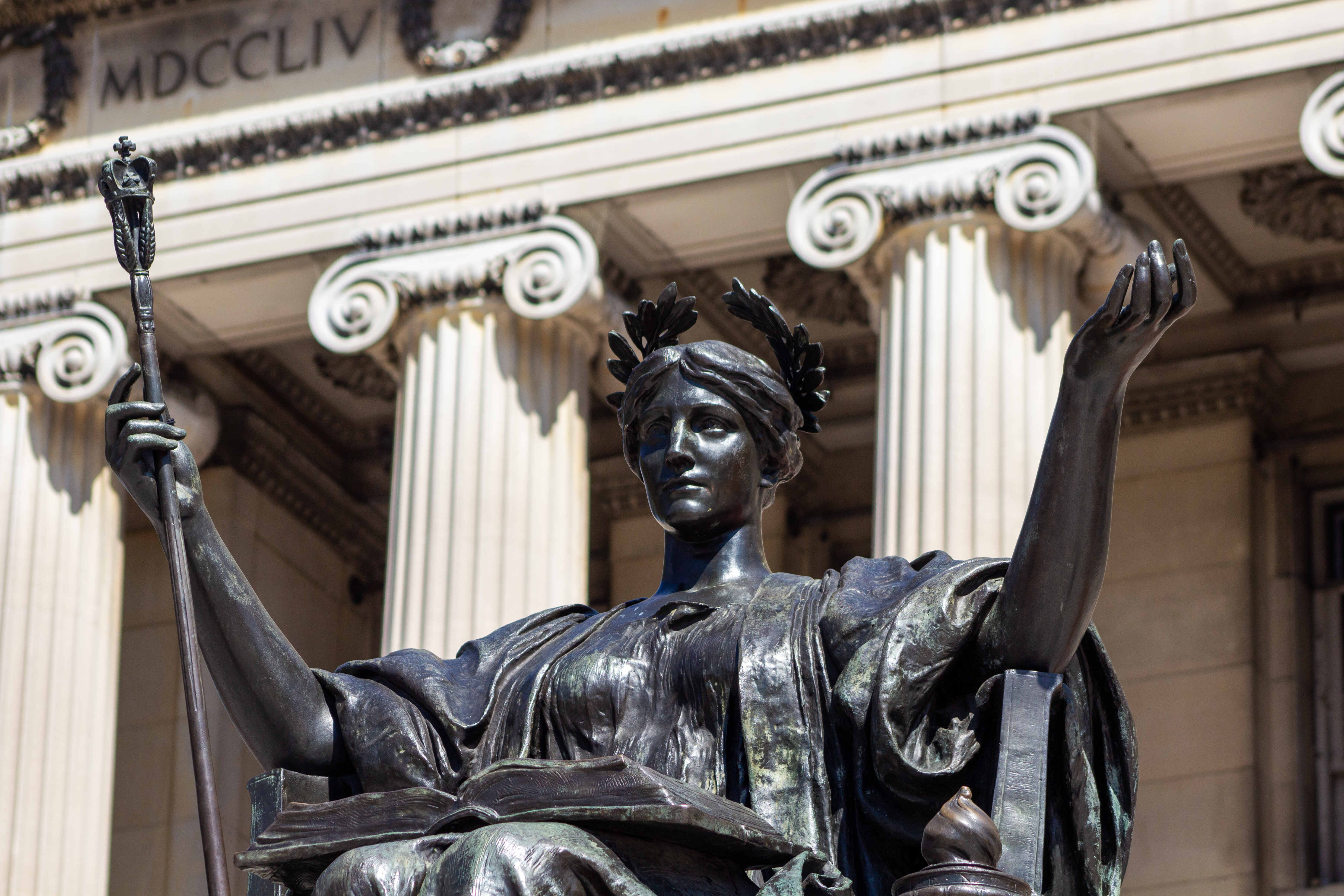Opinion | Op-Eds
Breaking from Bollinger’s tendency toward evasion, Shafik plans to meet with Morningside Heights housing justice organizations. Here’s what we have to say

By Gabriella Gregor Splaver / Senior Staff PhotographerBy The Economic Development Center of the Columbia Policy Institute • October 10, 2023 at 11:26 AM
By The Economic Development Center of the Columbia Policy Institute • October 10, 2023 at 11:26 AM
Dear President Shafik and the Trustees of Columbia University,
“Every time we hear a siren down the street, our fear is that we’re losing another one—another affordable home—to Columbia.”
This is a statement given to us by Dave Robinson of Morningside Heights on the great “waiting game” played by Columbia University. Residents unaffiliated with the University are acutely aware that when older neighbors pass away, there’s a high likelihood that their rent-stabilized apartment will be taken from the community and converted by Columbia into University-affiliated housing.
Since the University established itself in Morningside Heights over a century ago, both the fate of the University and that of the neighborhood have been inextricably intertwined. Columbia’s impact on its surroundings is undeniable: through the decisions of the board and economic environment created by thousands of students, faculty, and staff arriving to campus, the University has established a strong presence in Morningside Heights. While our message is channeled through the Columbia Policy Institute’s student-led Economic Development Center, we as a student community expect Columbia University to reshape its commitment to the future of Morningside Heights in a manner that is focused on the true needs of the community and our responsibility to it.
As an institutional developer and landlord, Columbia University has contributed to the stark decline of affordable, rent-controlled housing in the neighborhood. In Morningside Heights between 1940 and 1966, Columbia evicted more than 7,000 residents. In the approximate four decades following 1968, Columbia acquired and removed more than 6,000 units of rent-regulated housing for institutional use. In the 2000s, Columbia’s own environmental impact statement predicted that the Manhattanville expansion would indirectly displace 1,131 housing units.
Columbia’s aggressive history of obtaining and converting single-room occupancy buildings extended into 2023 with the conversion of Maranamay, a former SRO, into University housing (611 W. 112th St.). Although Maranamay was vacant and in poor condition, Columbia could have seized this opportunity to create some semblance of affordable housing for unaffiliated tenants in the Morningside Heights neighborhood. Despite pushes by the Morningside Heights Community Coalition for the University to designate some of the space in 611 W 112th St. for non-affiliates of low and moderate income housing, Columbia failed to extend a hand. This is another case of Columbia officials failing to facilitate real communication with community residents; in the early stages of the Manhattanville project from 2004 to 2007, Columbia officials undermined serious attempts to engage with the West Harlem community. With Maranmay,one of the 25 out of the original 33 SROs operational in 1961, now in the University’s possession, Columbia continues to interact with the community in a paternalistic manner.
Local community activists, Columbia students, and residents of the Morningside Heights Community Coalition have also observed drastic changes to the neighborhood’s identity: the unique and prosperous culture built by local residents has increasingly faded away. High rents imposed on small business owners and residents have rendered this area a company town. With the loss of family-owned businesses and affordable childcare opportunities, we also lose the perspectives of racially and socioeconomically diverse tenants who have a personal history in the neighborhood. The cultural essence of the Morningside Heights community is being pushed out.
We acknowledge that the University has made attempts to help the community. Columbia’s Advisory Council aims to “expand community partnerships” and “facilitate meaningful engagement” with our neighbors. Indeed, the Community Benefits Agreement established financial commitments from the University. But despite the efforts of the CBA, locals report that rent continues to rise and local businesses have consequently left the area.
This history is the result of an accumulation of board decisions that have prioritized University profit above all else. Although these are decisions taken before President Shafik’s time at Columbia, the start of a new term carries power to change the patterns of history. With these historical wrongs and lost opportunities in mind, the recent construction of a new building, 600 W. 125th St., must be employed by Columbia to provide affordable housing, extend its hand to the neighborhood, and rectify past wrongs.
President Shafik, we are in full support of your planned Oct. 10 engagement with housing justice-focused institutions of the Morningside Heights community, including organizations such as the Morningside Heights Community Coalition. We hope that this can contribute to and build on the progressing conversation between the University and community residents. We also want to support the voices of our Morningside Heights community members, as doing so would result in benefits both for Columbia and for the broader community by reinforcing local stability and real diversity, thereby improving the student experience in our shared neighborhood. It is with serious acknowledgment of the stake we share in the neighborhood that we, Columbia students and residents of Morningside Heights, call for:
More serious consideration of the demands of local organizations, including the Morningside Heights Community Coalition during the Oct. 10 meeting;
30 percent of the new 600 W 125th St. building to be available for unaffiliated tenant renting;
Rent-regulated units in Columbia-owned buildings to remain, in perpetuity, available to low income families.
As united neighbors, we welcome President Shafik and ask for the careful consideration and sincere, open discussion of these propositions.
Sincerely,
The Economic Development Center of the Columbia Policy Institute
To respond to this op-ed or to submit your own, contact opinion@columbiaspectator.com.
More In Opinion
Editor's Picks

